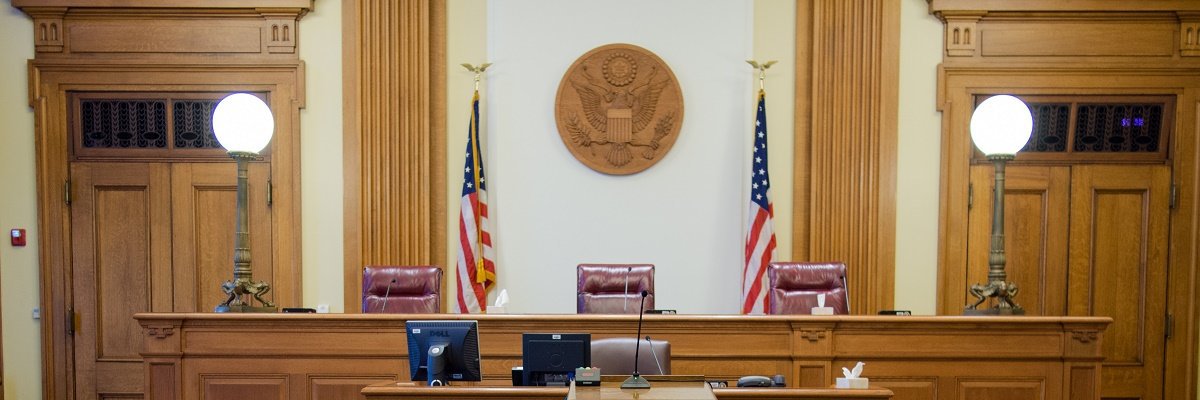This week there have been some great examples of the impact public records requests can have, including how a three-year fight for records ended up overturning a murder conviction, while another long-running transparency effort is leading to reforms in civil asset forfeiture in Illinois.
See a great use of FOIA or have one of your examples you’d like to share? Send it over via email, on Twitter, or on Facebook, and maybe we’ll include your story in the next roundup.
How a public records fight helped overturn a murder conviction
It started almost by accident: Attorney Stephen Reba, reviewing pages leftover from a murder trial of Dr. Noel Chua that had resulted in conviction, noticed a list of recommendations a county commissioner had put together regarding the makeup of the jury. Among other instructions, one thing stood out, as R. Robin McDonald reported for Law.com (Free registration required):
“Personally, I would avoid blacks on this jury. I understand you have some constitutional concerns there that have to be kept in mind, but try to avoid them.”
Reba snapped a picture, but getting a copy of the original document would kick off a three-years-long public records lawsuit:
“My initial thought was, ‘This is incredible,’ Reba said. “What must have actually been going on in this case if they had so casually kept this [memo] and thrown it back into the DA’s file?” He photographed the memo with his cellphone. “My first thought, quite frankly, was that I’m going to request [a copy of] this document and it’s going to disappear.” Reba was right. For nearly three years after his discovery, prosecutors fought to keep the memo secret, claiming it was privileged attorney work product and, thus, exempt from the state’s open records law. Only after Reba filed a public records suit against the DA and successfully appealed a lower court ruling backing the exemption did the current DA, Jackie Johnson, finally surrender the memo last year.
Earlier this week, based on the memo, Chua was set free after his conviction was overturned.
How to use public records and data to dig into your city’s deportation policies
We love when reporters share how to dig into public data to localize an important story, and Kate Howard recently shared a wonderful example of how to do just that when it comes to investigating local immigration enforcement policies. Her own story, for the Kentucky Center for Investigative Reporting, found that Louisville Police work closely with federal agencies to enforce immigration rules.
This story was based on CAD data records of calls from ICE. I want to tell you how to get them in your own town. 1/ https://t.co/qZdzqR7pwf
— Kate Howard (@JournoKateH) September 8, 2017
“LMPD’s policy - accept ICE’s calls for safety issues - is common. This is how you can check if ICE is asking your local cops to do more,” Howard wrote. “911/dispatch calls are generally open record, with some caveats. Records are also produced any time an officer is sent someplace. I requested all the CAD reports for any call where the caller/victim field or the notes field contained the words ICE or immigration. Unfortunately, there are lots of words that contain ICE - like POLICE. Or Office. Service. Janice. Messy data/Sad trombone.”
Louisville's emergency services sent me a spreadsheet that looked like this. After cleaning I was able to be sure I'd gotten all the calls. pic.twitter.com/CEBHJ9fxow
— Kate Howard (@JournoKateH) September 8, 2017
Not every system is the same, but that last column w/ #s starting with P? That’s the event number you’ll need to track down related docs. From there, you can get the dispatch call record that’ll tell you who went, how many officers, what time, and how the call was concluded.
Depending on what you see there, you might move on to arrest records, incident reports or body camera footage tied to that same event. Sound fun? IT SHOULD! You end up with a pretty good picture of if/when/why your PD assists immigration or whoever you’re investigating. Potential roadblock: privacy laws that might mean redactions of names, phone #s and addresses. If they don’t seem right/fair, appeal ‘em.
In summary - your PD probably doesn't track its help to federal agencies in a neat report, but it's very doable yourself. 13/last!
— Kate Howard (@JournoKateH) September 8, 2017
A MuckRock user did a similar investigation in Somerville several years ago and found that city policies clashed with police department policies - and none of them matched up with the reality on the ground.
Investigating the FCC

There’s been a lot of discussion about shadowy influence of our political discourse through the internet, and Jason Prechtel thought he saw the perfect opportunity to investigate one possible case of digital astroturfing: Public comments on the Federal Communication Commission’s “Restoring Internet Freedom” proposal.
Prechtel noted that 22,149,776 online public comments were collected, “but we still don’t know how many of those were left by actual people.” That’s particularly important since there were numerous documented cases where people’s names were used to comment — without those people’s knowledge, and some analysis indicated that possibly millions of comments received by the FCC were fake.
So Prechtel filed a request for:
- All public API keys, including associated registration names and e-mail addresses, that were used to submit online comments via ECFS to Proceeding 17–108, “Restoring Internet Freedom” between Apr 26, 2017 and today, and copies of all data files submitted through these API keys for the same.
- Logs of all times and dates that said public API keys were used to submit online comments via ECFS to Proceeding 17–108, “Restoring Internet Freedom” between Apr 26, 2017 and today.
- E-mail addresses associated with all .CSV comment uploads, along with all .CSV files uploaded in response to Proceeding 17–108, “Restoring Internet Freedom” between Apr 26, 2017 and today (including any accepted .CSV submissions that did NOT use the FCC’s “Restoring Internet Freedom ECFS Bulk Upload Template” .CSV file template).
- Logs of all times and dates that said e-mail addresses submitted online comments via the FCC’s online .CSV submission box to Proceeding 17–108, “Restoring Internet Freedom” between Apr 26, 2017 and today.
- All e-mail inquiries to ECFSHelp@fcc.govregarding .CSV comment submissions in response to Proceeding 17–108, “Restoring Internet Freedom” between Apr 26, 2017 and today.
The request was filed on June 4, but after being informed on June 14 that his request would take until July 18 to complete, he never heard back again, so now he’s suing. He’s detailed more about what he hopes to find from his request on freeCodeCamp.
Asset forfeiture updates
We have a long history with requests for information on the practice of asset forfeiture, from Todd Feather’s broad look into the practice to Lucy Parsons Labs crowdsourced investigation into the Chicago surveillance fund.
There’s still a lot more to uncover, however.
An investigation by Ryan Briggs and Max Marin for City&State PA and Philly Weekly found an asset forfeiture program there was used to create a secretive slush fund used for some very surprising expenditures:
With little need to concern itself with public scrutiny, the DAO’s clandestine revenue stream also paid for much more: $30,000 worth of submachine guns (equipped with military-grade laser sights valued at $15,000) for police tactical units; a $16,000 website development contract; custom uniform embroidery; a $76 parking ticket; $1,000 in raccoon-removal services; a push lawn mower; a pair of outboard motors; and tens of thousands in mysterious cash withdrawals – along with thousands of other expenses.
Lucy Parsons Labs also noted that their investigation had helped push recently-signed legislation reigning in the practice in Illinois, while sharing tips on how they tackled the subject:
A full look at how we used FOIA + other reporting to do our story w/ help from @MuckRock can be found here https://t.co/pqyAKDLaRD
— Lucy Parsons Labs (@lucyparsonslabs) September 20, 2017
See a great use of FOIA or have one of your examples you’d like to share? Send it over via email, on Twitter, or on Facebook, and maybe we’ll include your story in the next roundup.
Image by Karen Neoh via Flickr and licensed under Creative Commons BY-SA 2.0.




